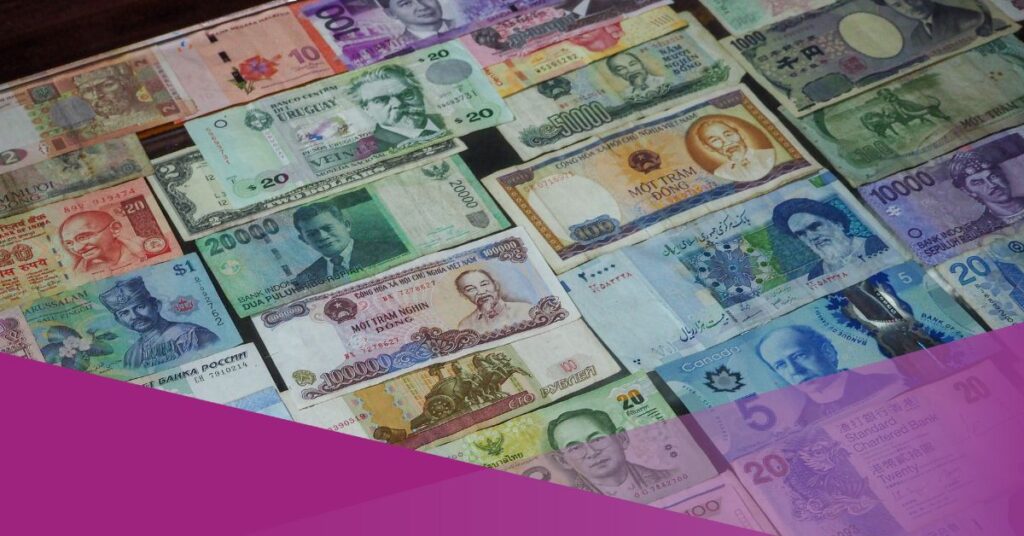The Indonesian rupiah continued its downward spiral this week, breaching the psychologically significant threshold of Rp17,000 per US dollar.
Jakarta, 7 April 2025 – The sharp depreciation of Indonesia Rupiah (IDR) towards US Dollar (USD) came in the wake of sweeping import tariff policies announced by United States President Donald Trump, sending ripples across global markets and unsettling investor sentiment in emerging economies, including Indonesia.
According to Bloomberg data, the rupiah briefly plummeted to IDR 17,217 per US dollar on Monday morning (7 April) at 09:16 WIB — marking its weakest position ever. The currency managed a slight rebound to IDR 16,927 per US dollar by 10:01 WIB, but concerns remain over sustained volatility. The current exchange rate has now exceeded the lowest point during Indonesia’s 1998 financial crisis, when the rupiah bottomed out at IDR 16,800 per US dollar.
In offshore trading, the rupiah’s value has been under even greater pressure. In the Non-Deliverable Forward (NDF) market, the currency was trading at IDR 17,059 per dollar as of Sunday morning (6 April, 08:10 WIB). This figure, drawn from Refinitiv, reflects the lowest exchange rate in Indonesia’s modern history. It also marks a stark contrast to the last recorded trading day before the Eid holiday break on Thursday (27 March), when the rupiah had strengthened slightly to IDR 16,555 per dollar.
NDF Market Reflects Mounting Pressure
The NDF market, which operates outside of Indonesia in financial hubs such as Singapore, Hong Kong, New York, and London, allows for currency trading without actual delivery. Though not legally binding in Indonesia, the rates in the NDF market often influence expectations and sentiment in the domestic spot market.
The stark contrast between the NDF rate and the official close prior to the holiday suggests the rupiah may face a sharp correction once onshore markets resume trading on Tuesday.
“Much of this depreciation is driven by external shocks, particularly the new wave of import tariffs imposed by the US administration,” said Hirofumi Suzuki, Chief FX Strategist at Sumitomo Mitsui Banking Corporation (SMBC), speaking to CNBC Indonesia.
“Trump Tariffs” Ignite Global Risk-Off Sentiment
The slump in the rupiah coincides with fresh trade policy moves from the United States. On Wednesday, 2 April, President Donald Trump announced sweeping new tariffs on imported goods in a policy move he dubbed “Liberation Day”. Under the new regime, a universal 10% tariff is applied to all foreign goods entering the US, effective from Saturday, 5 April 2025.
In addition, a number of countries, including Indonesia, face what is being termed as “reciprocal tariffs”. These higher levies are calculated based on the import restrictions or non-tariff barriers previously imposed by the respective countries on US goods.
Khoon Goh, Head of Asia Research at ANZ, explained that this sharp risk-off move across global markets had rapidly spilled over into the rupiah’s NDF pricing. “The rupiah breached the Rp17,000 mark in NDF trading as traders digested the ramifications of the US tariffs. Domestic markets have not yet priced in this move, as they are still closed for the Eid holidays,” he said.
Indonesia now faces a reciprocal tariff of 32%, according to a list released by the US administration. The tariff list categorises countries based on the level of trade protectionism historically enacted against US imports.
The highest reciprocal tariffs include:
-
Cambodia: 49%
-
Laos: 48%
-
Madagascar: 47%
-
Vietnam: 46%
-
Sri Lanka and Myanmar: 44%
-
China: 34%
-
Taiwan and Indonesia: 32%
-
Switzerland: 31%
-
South Africa: 30%
Other Southeast Asian nations also saw significant tariffs: Thailand (36%), Malaysia and Brunei Darussalam (24%), and the Philippines (17%).
Countries not named in the list will be subject to the base 10% tariff on all imported goods. Meanwhile, a select group of eleven countries have been exempted entirely, including Canada, Mexico, Russia, North Korea, and the Vatican.
Table: Countries Subject to U.S. Retaliatory Tariffs
| Tariff Rate (%) | Countries |
|---|---|
| 49% | Cambodia |
| 48% | Laos |
| 47% | Madagascar |
| 46% | Vietnam |
| 44% | Sri Lanka, Myanmar |
| 41% | Syria |
| 37% | Bangladesh, Serbia, Botswana |
| 36% | Thailand |
| 34% | China |
| 32% | Taiwan, Indonesia |
| 31% | Switzerland |
| 30% | South Africa |
| 29% | Pakistan |
| 28% | Tunisia |
| 27% | Kazakhstan |
| 26% | India |
| 25% | South Korea |
| 24% | Japan, Malaysia, Brunei Darussalam |
| 21% | Côte d’Ivoire (Ivory Coast) |
| 20% | European Union, Jordan |
| 18% | Nicaragua |
| 17% | Israel, Philippines |
| 10% | United Kingdom, Brazil, Singapore, Chile, Australia, Turkey, Colombia, Peru, Costa Rica, Dominican Republic, United Arab Emirates, New Zealand, Argentina, Ecuador, Guatemala, Honduras, Egypt, Saudi Arabia, El Salvador, Trinidad and Tobago, Morocco |
| Base Rate (10%) | Countries not listed above |
| 0% (Exempted) | Belarus, Burkina Faso, Canada, Cuba, Mexico, North Korea, Palau, Russia, Seychelles, Somalia, Vatican |
Economic Implications for Indonesia
For Indonesia, the combination of a sharply weakening currency and new trade barriers with one of its largest trading partners presents a dual economic challenge. While a cheaper rupiah can benefit exports, it also raises the cost of imported goods, fuels inflation, and puts pressure on Bank Indonesia to consider policy interventions.
As the rupiah crosses the Rp17,000 threshold, concerns grow among businesses and investors alike regarding the long-term stability of Indonesia’s financial markets. Analysts suggest that unless global trade tensions ease or central banks take coordinated action, the pressure on emerging market currencies such as the rupiah may persist.
The coming week will be critical in determining how Indonesian financial authorities respond once domestic markets reopen. Observers anticipate a flurry of policy commentary, and potentially market intervention, as the central bank seeks to stabilise the currency and restore investor confidence.






























